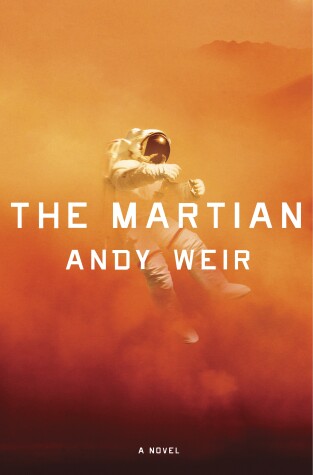Reviewed by gmcgregor on
What follows is an epic struggle for survival, as Mark tries to figure out how to stay alive, and (when they become aware that he's alive at all), NASA tries to figure out how to get him home. Like most engineers, Mark is a skilled problem-solver, and it's only through a combination of his smarts, determination, and some blind luck that he's able to figure out how to meet the challenges his circumstances throw at him: he figures out how to grow food to supplement the insufficient stores he's left with, he has to come up with a way to travel long-distance across the surface, he has to establish ways to communicate with Earth, he has to deal with unpredictable weather...the list goes on and on. But if everything goes right, he just might make it after all.
This was one of those circumstances where I'd seen the movie first, and I have to say, I think the movie worked better. There are some circles where this is heresy, I know. But there's something that worked watching this story play out over two-ish hours onscreen better than spending several hours, over multiple days, reading it on the page. There's a formulaic-ness to the plotting that becomes very obvious: Mark encounters a problem, which he records in his mission log (these entries comprise most of the book), he comes up with a solution, he explains the solution and how he came up with it and the science behind it, and then there's the next problem...lather, rinse, repeat. By the end, I was skimming through the science bits, because they were meant to show how smart and innovative Mark is rather than advance the story, but because I'd been reading a couple hundred pages of it, I already knew that Mark was smart and innovative.
Which brings me to my other issue with the book: the character of Mark. In a lot of ways, he's a good lead character: the aforementioned intelligence and innovation, a good sense of humor, a distinctive "voice". He's easy to root for. But I found him a little too high-spirited to be really realistic. He's perpetually ready to take on the next challenge, but for a person painted as a naturally social, outgoing fellow, it strained my credulity beyond belief that he never particularly struggled with depression, despite months and months of enforced solitude. Every real obstacle that comes his way is external, and I wanted to see a little more internal development.
I know I've just laid out two major issues with characterization and plot, but honestly this book isn't bad. It's pretty good. But given its immense popularity, I was expecting something a lot closer to greatness, and I did not find greatness here. Is this an entertaining sci-fi read, and worth getting to? Sure! It's easy to read and engaging and builds suspense nicely even though the ultimate ending is predictable. But don't expect anything particularly special.
Reading updates
- Started reading
- 9 March, 2018: Finished reading
- 9 March, 2018: Reviewed
